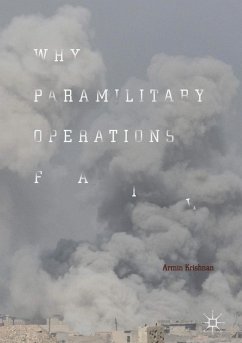
Disobedience in the Military (eBook, PDF)
Legal and Ethical Implications
Versandkostenfrei!
Sofort per Download lieferbar
52,95 €
inkl. MwSt.
Weitere Ausgaben:

PAYBACK Punkte
26 °P sammeln!
We often think of the army as an institution whose members are required to blindly obey all orders they receive. However, this perception is inaccurate. Disobedience is a fundamental professional obligation of members of the military and overrides the obligation to follow commands. But what is the extent of this obligation? Are soldiers obligated to participate in what they consider to be an illegal war, or should they be allowed to enjoy a right to selective conscientious objection? Should soldiers obey a legal order that, if followed, would facilitate the perpetration of war crimes by a thir...
We often think of the army as an institution whose members are required to blindly obey all orders they receive. However, this perception is inaccurate. Disobedience is a fundamental professional obligation of members of the military and overrides the obligation to follow commands. But what is the extent of this obligation? Are soldiers obligated to participate in what they consider to be an illegal war, or should they be allowed to enjoy a right to selective conscientious objection? Should soldiers obey a legal order that, if followed, would facilitate the perpetration of war crimes by a third party? How should soldiers act if they are ordered to follow a lawful order that could result in immoral consequences? Should soldiers be allowed to refuse to obey what can be labeled as suicidal orders? Based upon the nature of soldiers' professional obligations, this book tries to offer answers to these important questions. The author turns to a number of different case-studies, including conscientious objections, duty to protect in genocidal situations such as Rwanda and Srebrenica, suicidal orders in wars, as well as retribution and leniency towards war criminals, as a way of assessing the different legal and ethical implications of disobedience in the military.
Dieser Download kann aus rechtlichen Gründen nur mit Rechnungsadresse in A, B, BG, CY, CZ, D, DK, EW, E, FIN, F, GR, HR, H, IRL, I, LT, L, LR, M, NL, PL, P, R, S, SLO, SK ausgeliefert werden.












